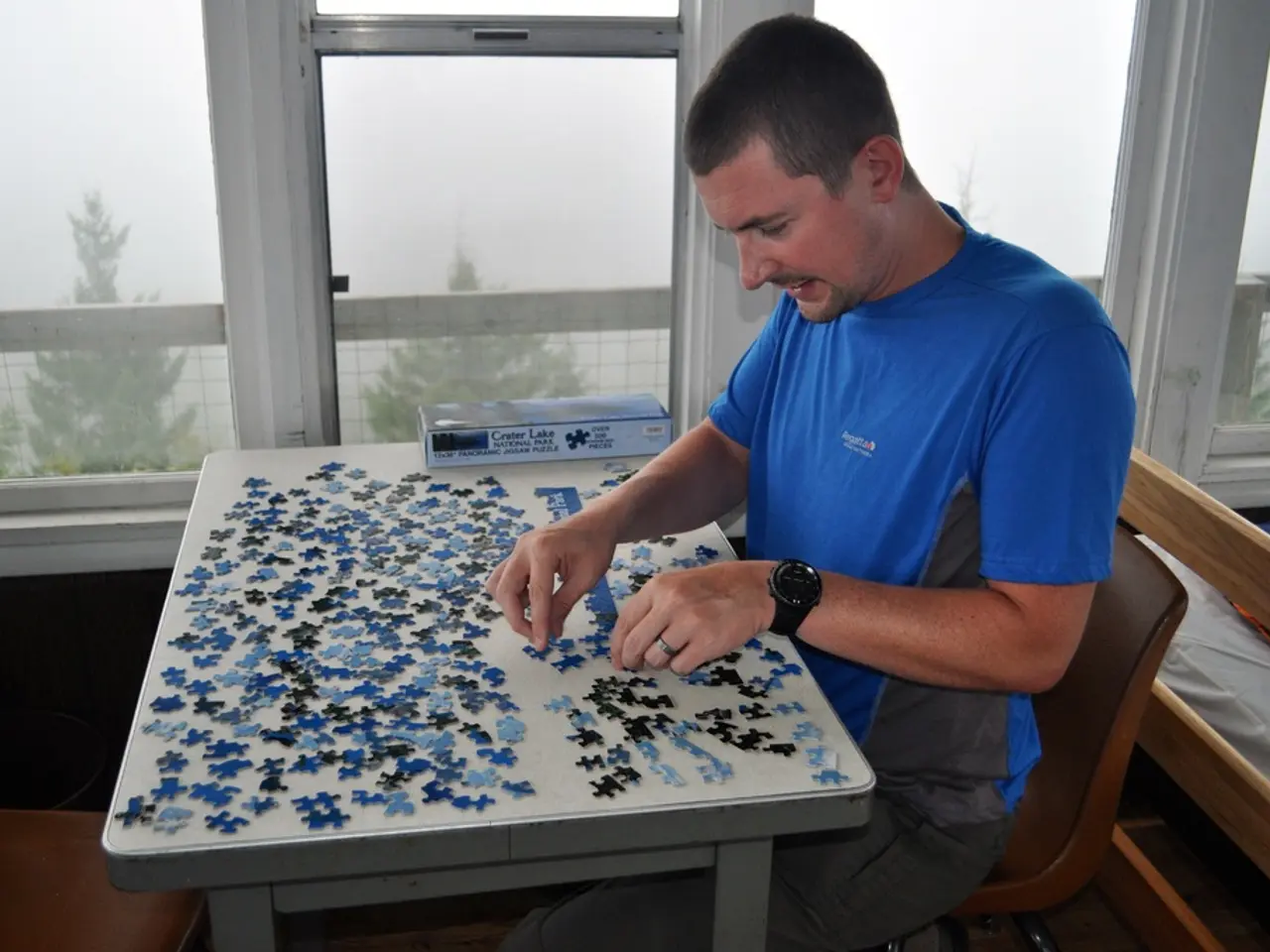Brain Activity Unveiled During Problem-Solving Process
In a groundbreaking study published earlier this month in the journal Nature Communications, neuroscientists have discovered that teaching strategies that create memorable, emotionally engaging experiences can significantly enhance students' learning retention and motivation.
The research, led by Roberto Cabeza, a professor of psychology and neuroscience at Duke University, suggests that effective teaching should go beyond delivering content and focus on how lessons are presented to spark curiosity, creativity, and emotional involvement.
The study, which used functional magnetic resonance imaging (fMRI) to record brain activity, found that the regions of the ventral occipito-temporal cortex, associated with recognizing visual patterns, were particularly active during moments of insight or "aha" experiences.
Moreover, the study revealed that during these moments, the brain reorganizes how it sees the image, as stated by Maxi Becker. The hippocampus, a brain region involved in learning and memory, experienced a burst of activity.
Interestingly, the study found that participants who had an "aha" moment while learning something almost doubled their memory. Furthermore, the researchers noted that changes in participants' neuron firing dynamics were evident when they recognized the secret object in the puzzle.
The study also found that the different regions communicated with each other more efficiently during moments of insight. This increased connectivity between brain regions is a key factor in triggering epiphanies.
The findings align with broader brain research showing that moments of insight involve integrated brain activity and often emotional arousal, which supports memory consolidation and transfer of learning.
Practical implications for teachers emerge from this research. Lessons should be designed as experiences rather than lectures, using storytelling, simulations, or creative methods to foster engagement. By leveraging the brain’s responsiveness to novelty, emotion, and meaning, teachers can facilitate moments of insight that enhance learning retention and motivation.
The researchers aim to investigate what takes place in between the "aha" moment, focusing on the process that occurs during the real magic happening. They believe that learning environments that encourage insight could potentially boost long-term memory and understanding.
In conclusion, the new brain research underscores the importance of creating immersive, emotionally resonant learning experiences that encourage personal insight, rather than just passive information delivery. This approach could revolutionize classroom teaching strategies, leading to more engaged, motivated, and successful learners.
- Gizmodo article on groundbreaking research suggests that effective technology in education, such as virtual reality storytelling or interactive simulations, can aid in promoting emotional engagement, creativity, and curiosity, which boost learning retention and motivation in science, health-and-wellness, and mental-health subjects.
- Given the recent discoveries on insight moments in the brain, science and technology may one day develop innovative AI teaching systems that smartly mimic these key factors, potentially revolutionizing the future of education and enhancing students' learning experiences.
- As Neuroscientists continue investigating the process occurring during 'aha' moments, different branches of science, including technology and psychology, may collaborate to create new methods aimed at developing both personalized and immersive learning experiences to optimize memory retention and motivation in health-and-wellness, mental-health, and other fields.




